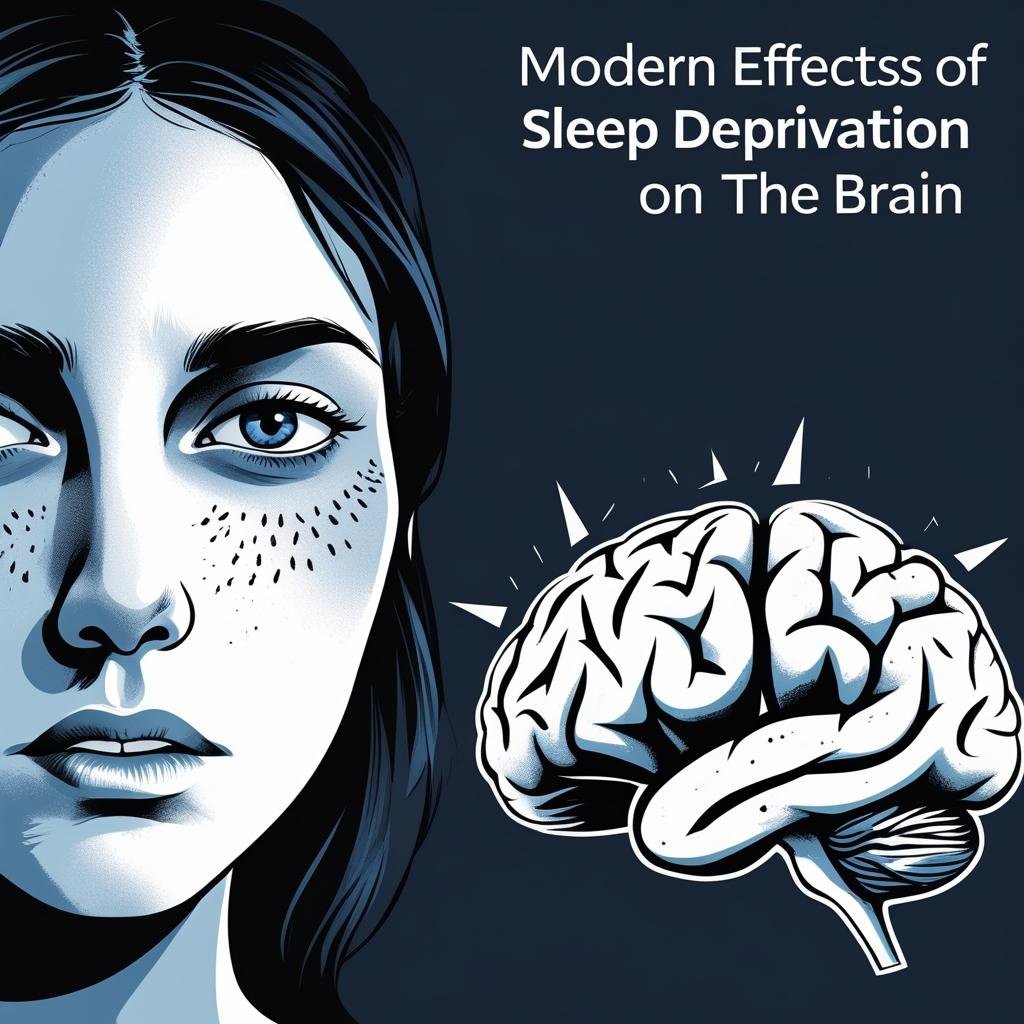Sleep is not a luxury — it’s a biological necessity. Yet, in today’s fast-paced world, many people sacrifice sleep in favor of work, entertainment, or other responsibilities. While missing a few hours of sleep occasionally may seem harmless, chronic sleep deprivation can severely affect the brain and mental health. In this article, we’ll explore how lack of sleep impacts brain function, memory, emotions, and even long-term cognitive health.
What is Sleep Deprivation?
Sleep deprivation occurs when an individual gets less sleep than needed to function optimally. Adults typically require 7–9 hours of sleep per night, while teenagers and children need even more. When this requirement isn’t met consistently, the brain begins to show signs of stress and dysfunction.
1. Cognitive Function Declines
One of the first areas affected by sleep loss is cognitive performance. Lack of sleep leads to:
- Reduced attention span
- Poor decision-making
- Decreased alertness
- Slower reaction times
Studies show that people who are sleep-deprived perform tasks with the same level of impairment as someone intoxicated. This makes sleep deprivation extremely dangerous, especially in high-stakes environments like driving or operating machinery.
2. Memory and Learning are Affected
Sleep plays a critical role in memory consolidation — the process of converting short-term memories into long-term ones. Without enough sleep:
- You’re less likely to retain new information.
- Learning becomes more difficult.
- Existing memories may become harder to access.
Both REM sleep and deep sleep are essential for memory processing, and missing out on them can severely impact academic or work performance.
3. Emotional Instability Increases
The brain’s emotional centers, particularly the amygdala, become more reactive under sleep deprivation. This can result in:
- Increased irritability
- Heightened stress responses
- Anxiety or depression
- Overreaction to negative stimuli
Lack of sleep impairs the prefrontal cortex, which normally helps regulate emotional responses. As a result, people may feel overwhelmed or out of control emotionally after poor sleep.
4. Brain Detoxification is Disrupted
During sleep, the brain undergoes a “cleansing” process using the glymphatic system, which removes toxins and waste products such as beta-amyloid — a compound associated with Alzheimer’s disease. Sleep deprivation slows down this process, increasing the risk of:
- Neurodegenerative diseases (e.g., Alzheimer’s, Parkinson’s)
- Inflammation in brain tissue
- Long-term damage to neurons
This shows that consistent sleep isn’t just about feeling rested — it’s about protecting your brain’s future.
5. Reduced Creativity and Problem-Solving Skills
Sleep enhances our ability to think creatively and solve complex problems. A tired brain becomes:
- Less flexible in thinking
- More prone to errors
- Poor at coming up with innovative ideas
This is why many professionals, artists, and entrepreneurs prioritize rest to stay sharp and productive.
6. Long-Term Risks of Chronic Sleep Deprivation
Chronic sleep loss may contribute to several long-term issues:
- Increased risk of stroke
- Higher chances of mental illnesses
- Greater risk of dementia
- Lower brain volume over time
These consequences highlight the importance of consistent, quality sleep as a long-term investment in mental health.

Tips for Improving Sleep and Brain Health
To protect your brain, consider adopting these healthy sleep habits:
Maintain a Consistent Sleep Schedule
Go to bed and wake up at the same time every day — even on weekends.
Limit Screen Time Before Bed
Blue light from phones or laptops suppresses melatonin production, making it harder to fall asleep.
Create a Relaxing Bedtime Routine
Meditation, reading, or soft music can help signal your body that it’s time to sleep.
Avoid Caffeine & Heavy Meals Before Bed
Both interfere with your ability to fall and stay asleep.
Optimize Your Sleep Environment
Keep your bedroom cool, quiet, and dark to improve sleep quality.
Sleep deprivation may seem like a small sacrifice in the short term, but its effects on the brain can be profound and lasting. From memory loss to mood swings, and from poor decision-making to long-term brain damage, the price of skipping sleep is far too high.
Protect your brain — make sleep a priority.